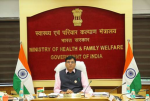Jan 10, 20220
London: Most meat eaters admit veganism is ethical and good for the environment, researchers have found.
The study, published in the journal Sustainability, looked at public opinion on plant-based diets and found widespread support for the ethics and environmental benefits of veganism and vegetarianism among meat-eaters.
The findings from University of Bath, UK, suggest that 73 per cent of meat-eaters surveyed, considered veganism to be ‘ethical’, 70 per cent said it was good for the environment and half (50 per cent) considered it healthy and 60 per cent thought veganism was ‘acceptable’.
“At a time of year when many people are considering switching to plant-based diets with ‘Veganuary’, this study shows that most people already agree with the ethics of veganism and are aware of the benefits of vegan diets to the environment,” said study researcher Chris Bryant from the University of Bath.
The study, which involved 1,000 men and women with an average age of 34, was conducted in September 2018. Participants were recruited online through the survey platform Prolific.
By contrast, over 80 per cent of respondents thought veganism was not easy, 77 per cent thought it ‘inconvenient’ and over 60 per cent thought it was not enjoyable.
Attitudes from respondents towards vegetarianism were significantly more positive on almost all counts.
According to the researchers, this research is focused on shifting preferences away from animal consumption in view of climate change and reducing animal suffering.
“Many people agree with the principles of veganism is one thing, but in terms of changing behaviours we need to acknowledge that for many it has been seen as too expensive, inconvenient and a sacrifice in terms of taste,” Bryant said.
Interestingly, in the time since this study was conducted, these things have all changed substantially. Supermarkets, restaurants, and even fast food outlets have developed numerous high quality and affordable vegan options, the study said.
“Having direct replacements for the foods people know and like makes it easier for everybody to consume fewer animal products,” Bryant said.
“If we are to reduce animal product consumption in the UK and around the world, the development of high quality affordable alternatives to animal products is key,” Bryant added.IANS



















